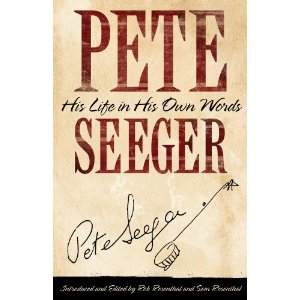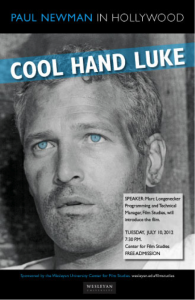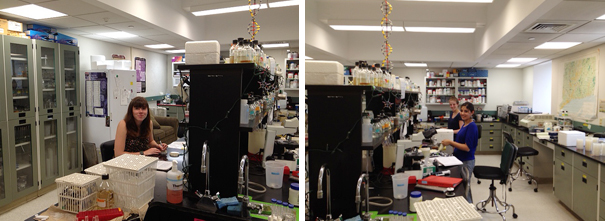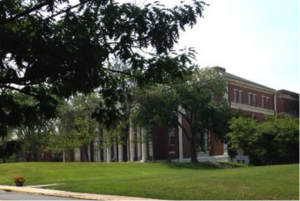I’ve spent much of the summer not far from Great Barrington, Massachusetts, the hometown of one of the great figures of American intellectual history, W.E.B. Du Bois. Born shortly after the end of the Civil War, Du Bois came into his own as another black public intellectual, Booker T. Washington, was reaching the height of his fame. I turned to Du Bois and Washington because their debate about education seemed so relevant to contemporary discussions of liberal learning and practicality. I was led in this direction by the Princeton philosopher, Kwame Anthony Appiah, whose article on Du Bois in the New York Review of Books is particularly incisive.
Washington’s fame was as a teacher, institution builder (especially at the Tuskegee Institute), fundraiser and spokesperson for the view that American blacks needed an intensely practical, vocational education. He appealed to ex-slaves and their descendants who were looking for a path out of economic impoverishment, and he appealed to whites who appreciated his decision not to promote political or cultural change. Washington was an “accomodationist,” willing to work within the structures for legal subordination of blacks in the South as long as he was able to promote black economic advancement. His message resonated with wealthy industrialists, high-toned educators, and even presidents. He was the most famous black man in America at the end of the 19th century. At around that time, the younger Du Bois was a prodigious intellectual with a slew of degrees – bachelors diplomas from Fisk and Harvard, eventually a Ph.D. also from Harvard (he was the first black person to receive one there) with continued graduate work in Berlin. He was a classics professor and a historian who wrote sociology (highly praised by Max Weber), poetry, plays and fiction – to name just some of the genres in which he worked.
Washington recognized the American desire for material success and wanted to build progress for African Americans on their ability to be successful in the economy. Du Bois, on the other hand, emphasized political and civic equality, along with “the education of youth according to ability.” Education was at the core of the differences between these leaders. Du Bois rejected the head of Tuskegee’s anti-intellectualism. “The pushing of mere abstract knowledge into the head means little,” Washington had written. “We want more than the mere performance of mental gymnastics. Our knowledge must be harnessed to the things of real life.” Du Bois agreed, but he wanted to broaden what might count as “the things of real life” so that the pursuit of happiness wouldn’t be reduced to the pursuit of dollars.
The function of the university is not simply to teach bread-winning, or to furnish teachers for the public schools, or to be a centre of polite society; it is, above all, to be the organ of that fine adjustment between real life and the growing knowledge of life, an adjustment which forms the secret of civilization.
Du Bois was acutely aware that the “fine adjustment” between life and knowledge was especially problematic in a society of oppressive racial inequality, a society that had denied many blacks the most rudimentary education in the years after emancipation. He was committed to the ideal that education was a path to freedom, but he also acknowledged the fact that different people need different kinds of educational opportunity.
If these things are so, how foolish to ask what is the best education for one or seven or sixty million souls! Shall we teach them trades, or train them in liberal arts? Neither and both: teach the workers to work and the thinkers to think; make carpenters of carpenters, and philosophers of philosophers, and fops of fools. Nor can we pause here. We are training not isolated men but a living group of men, –nay, a group within a group. And the final product of our training must be neither a psychologist nor a brickmason, but a man.
Education is for human development, human freedom, not the molding of an individual into a being who can perform a particular task. That would be slavery.
As Frederic Douglass had emphasized after he had escaped from slavery, people strive to know just as they strive for freedom. Educational institutions aim to stimulate that hunger for knowledge – not just contain it or channel it into a narrow path destined for yesterday’s job market. Education should not teach the person to conform to a function, but should provide people with a wider horizon of choices. (That’s one of the reasons excessive student loan debt is so pernicious – it effectively reduces choices.)
The tension between Washington and Du Bois on education reminds us of issues that should be top of mind as we prepare for the academic year. Sure, we have to pay attention to what our graduates will do with their education, and we must give them the skills to translate what they learn in classrooms to their lives after graduation. But we shouldn’t reduce our understanding of “their lives after graduation” to their very first job — which should be the worst job they’ll ever have. We must recommit ourselves to ensuring that a broad, liberal education is one that is “harnessed to the things in real life,” as Washington said. By doing so, we will also achieve what Du Bois championed: the vital link between education and freedom.
cross-posed with huffingtonpost.com







